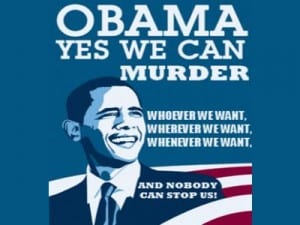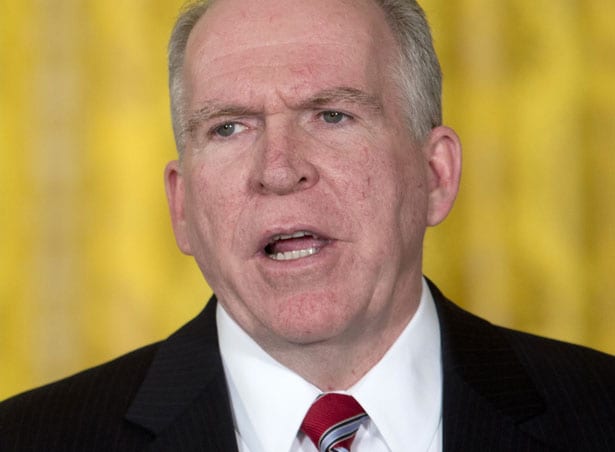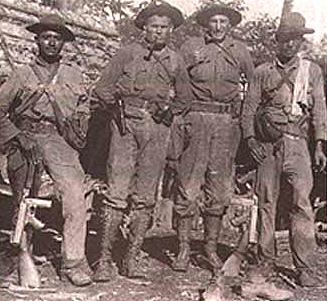Media Mayor Cory Booker Bombs in Home Town of Newark
By Linn Washington Jr., This Can’t Be Happening!
Those right-wing roots, for example, provide an under-examined explanation for Booker’s lashing out at President Obama last May after a campaigning Obama criticized economic deprivations caused by hedge fund manipulations when he took Mitt Romney to task for the then GOP candidate’s tenure as head of venture capital firm Bain Capital.
Journalist Glen Ford has reported extensively on Booker’s conservative connections for over a decade, beginning with Booker’s September 2000 New York City address at the Manhattan Institute, one of America’s leading right-wing think tanks.
“It’s amazing that most people don’t see this background,” Ford said.
“You must understand that the Manhattan Institute is not some eclectic entity,” Black Agenda Report co-founder Ford said. “This is what makes Cory Booker different from other right-wing Democrats. He comes from the bosom of the right-wing…he started there.”
Ford’s coverage includes Booker’s alignment with the conservative school voucher movement that seeks to siphon government funding from public schools into corporate and religious coffers – a defunding movement that has a profound detrimental impact on large numbers of minority students and minority professionals in public schools.
Favorable media coverage of Booker explains why most people across New Jersey and nationwide view him as progressive. That coverage portrays a mayor who saved a neighbor from a burning building, sustaining second-degree burns during that rescue. It focuses on him for raising more than $250-million in donations for projects in his beleaguered city.
“Most people in Trenton and South Jersey look at Booker as a great mayor because they see him on CNN and other television shows all the time,” Trenton, NJ community activist Daryl Brooks said. “But in inner-city areas of Newark, residents don’t view Booker as a great leader. There is a feeling that he is more interested in his national and international image than in doing something for poor people.”
A December 2012 New York Times article contained rare mainstream media criticism of Booker, citing growing complaints in Newark that Booker is “a better marketer than mayor.”
The telegenic Booker,43, a Yale Law graduate and Rhodes Scholar, counters criticisms like that from Trenton activist Brooks by citing polls showing 60 percent support for him in Newark.
But Bessie White, a 50-year resident of Newark who lives in the city’s South Ward, said, there is a great deal of disappointment regarding Booker, particularly around his leadership in the delivery of city services.
“We expected changes when [Booker] became mayor,” White said (Booker became Newark’s mayor in July 2006). “He is the first mayor to lay off police. We don’t have a sense of security anymore.”
The Newark Star-Ledger newspaper, in a July 2012 article, documented that Mayor Booker spent nearly a quarter of his time outside of Newark during an 18-month period ending in June 201.
While Booker boosted Newark during many of those trips (some of them day-trips), he also boosted his personal bank account with speaking fees estimated between $250,000-to-$500,000, that article stated.
Ras Baraka, the City Councilman for Newark’s South Ward, said he feels Booker’s “personal ambitions” have always exceeded his commitment to solving problems in Newark.
“The Mayor’s basically been a media darling and that has prevented him from tackling issues,” Baraka said. “The lack of jobs drives crime and other issues. Things can be done without millions or the need for rocket science. But we need leadership.”
Newark’s unemployment rate, hovering around 15 percent, is dramatically higher than the NJ rate, a statewide rate that is the fourth highest in the nation. The current unemployment rate in NJ’s largest city is also five points higher than when Booker took office in 2006.
Foreclosures in Essex County, which contains Newark, are the highest in NJ, the state with the nation’s second highest foreclosure rate.
New corporate business, construction projects and jobs are flourishing in Booker’s Newark. An October 2012 Bloomberg News article applauded Booker for bringing $700-million in new investments into his city, including the relocation of corporate headquarters, opening new factories and erecting affordable housing.
But benefits from all that economic development centered mainly in Newark’s downtown are not effectively trickling down into neighborhoods around Newark…at least that’s the perception that is driving rising disenchantment with Booker among increasing numbers of Newark residents.
Mayor Booker’s office did not respond to requests for comments and information despite promises to do so.
Interestingly, for a man garnering so much uncritical media coverage, Booker is often quick to bash his critics by contending their criticisms of him are crass efforts to garner favorable media coverage of their own.
When the ACLU-NJ sued Booker in 2011 for his refusal to release documents requested by a Newark parents group seeking details about the $100-million gift to Newark public schools from Facebook billionaire founder Mark Zuckerburg, Booker blasted the ACLU for seeking media “publicity” by attacking him.
Booker initially denied the existence of those documents, and then shifted, admitting the documents existed but asserted that mayoral executive privilege permitted him to withhold them. Booker also tried to blunt that lawsuit by claiming his acceptance of the Zuckerburg gift on Oprah’s then television show was not an official mayoral act.
A judge, in December 2012, ordered Booker to release the requested documents, rejecting Booker’s executive privilege and other claims.
Booker’s stonewalling on releasing the Zuckerburg gift documents and his failed November 2012 effort to install a candidate he backed into a vacant City Council seat (that trigger a mini-riot inside the Council chambers) seemingly contradicts positions he advanced during that Manhattan Institute address.
During that luncheon address Booker blasted Newark’s then political power brokers for constantly seeking to expand their “sphere of control, always hoping to control more and more resources and authority.”
Three weeks after Booker used an arcane procedure to install that Council candidate, a judge ruled Booker had no legal authority to vote on that candidate’s behalf.
One curious aspect overlooked in media coverage is that some of Booker’s harshest critics are former friends and/or political allies who use words like ‘betrayal’ when describing him.
Newark City Councilman Ronald C. Rice ran on Booker’s 2006 ticket. Rice even opposed his own father, who stepped into that mayoral race against Booker following the last minute withdrawal of the incumbent mayor.
“There are a majority of folks who like the man personally,” Rice said. “But those are the same people who are angry with conditions in this city.”
Rice joined the lawsuit voiding Booker’s Council candidate action.
“I don’t begrudge [Booker’s] celebrity, but he needs to do the non-glamorous work,” Rice said.
ABOUT THE AUTHOR
While not yet quite old enough to collect Social Security, Linn Washington Jr. has been in the news business long enough to have seen both the introduction of computers into newsrooms and the current strangling of the news media unleashed not by the rise of the Internet but largely from greedy investors whose snatching of financial resources from profit-generating news operations has crippled news gathering. A columnist for the historic Philadelphia Tribune, the nation’s oldest African-American owned newspaper, Washington is also Associate Professor of Journalism at Temple. Washington also holds a law degree from the Yale University.




